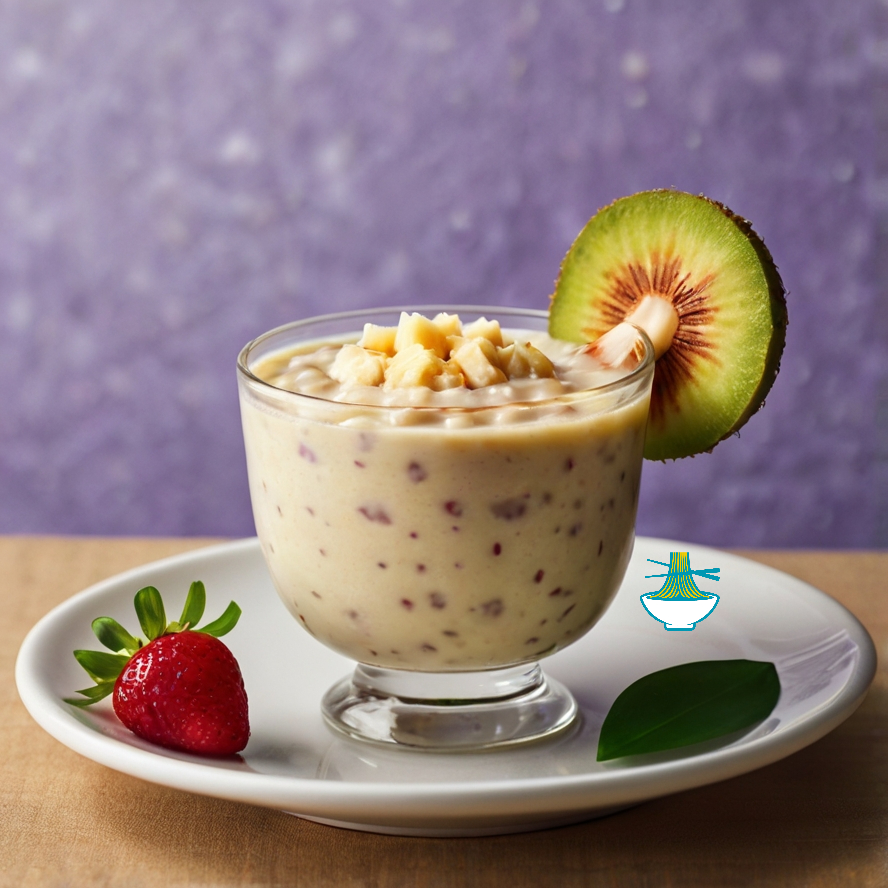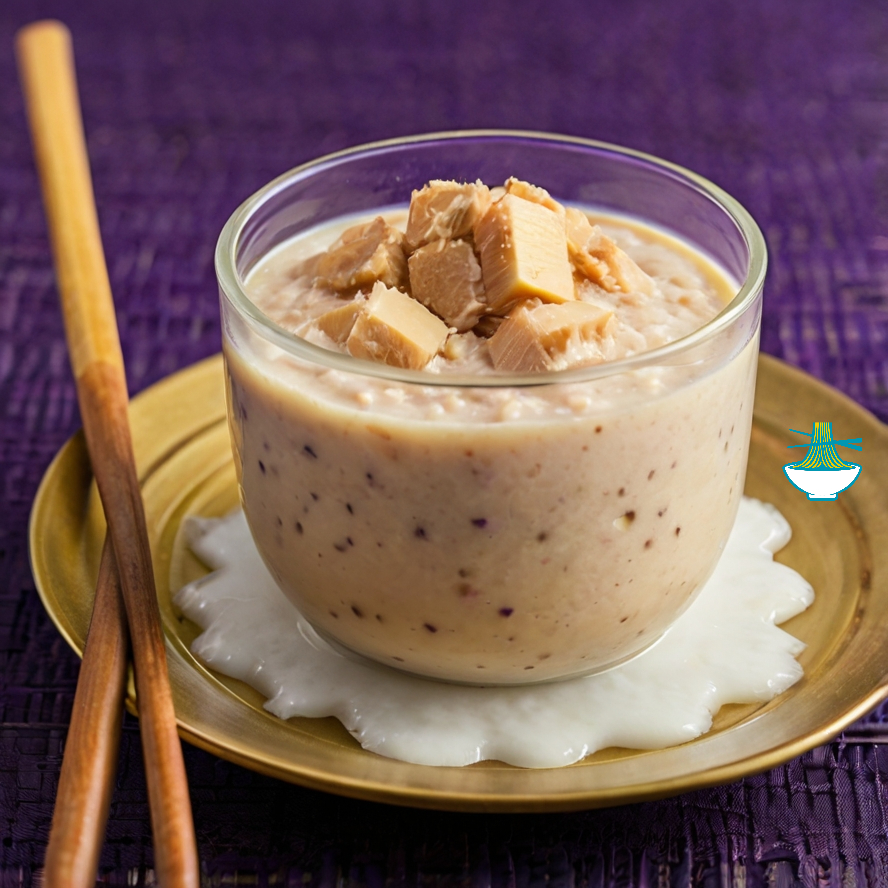Taro pudding or taro mash or taro paste: mashed taro with creamy coconut milk,sweetened with sugar or honey. Delightful blend of flavors, perfect dessert treat.
Taro pudding traces its roots to various Asian and Pacific Island cultures where taro is a staple ingredient. It has been enjoyed for generations as a comforting dessert, often served during festive occasions and celebrations. Over time, the recipe has evolved, with different regions adding their own unique twists and variations to suit local tastes. Today, taro pudding continues to be cherished worldwide for its delicious taste and cultural significance.
Ingredients:
- 1 cup mashed taro
- 1 can (13.5 oz) coconut milk
- 1/4 cup sugar or honey (adjust to taste)
- Pinch of salt
Method:
1. In a saucepan, combine mashed taro, coconut milk, sugar (or honey), and a pinch of salt.
2. Cook over medium heat, stirring constantly until the mixture thickens, about 10-15 minutes.
3. Once thickened to a pudding-like consistency, remove from heat.
4. Let the pudding cool slightly before serving.
5. Optionally, garnish with toasted coconut flakes or chopped nuts before serving.
Enjoy your delicious and creamy taro pudding!
Nutrition Value:
1. 1 cup mashed taro
- Calories: Approximately 187 kcal
- Carbohydrates: About 46 grams
- Protein: Around 2 grams
- Fat: Less than 1 gram
- Sodium: Less than 10 milligrams
- Cholesterol: 0 milligrams
- Vitamins: Rich in Vitamin C, Vitamin B6, and Vitamin E
- Minerals: Good source of potassium, magnesium, and manganese
- Nutritional Benefit: Taro provides complex carbohydrates for sustained energy, along with dietary fiber for digestive health. It also contains various vitamins and minerals essential for overall health, including antioxidants that help fight inflammation and boost immunity.
2. 1 can (13.5 oz) coconut milk
- Calories: Approximately 702 kcal
- Carbohydrates: About 12 grams
- Protein: Around 7 grams
- Fat: Approximately 75 grams
- Sodium: Around 30 milligrams
- Cholesterol: 0 milligrams
- Vitamins: Contains Vitamin C, Vitamin E, and Vitamin B-complex
- Minerals: Rich in manganese, copper, and iron
- Nutritional Benefit: Coconut milk is a source of healthy fats, particularly medium-chain triglycerides (MCTs), which can aid in weight management and provide energy. It also offers various vitamins and minerals crucial for metabolic functions and immune support.
3. 1/4 cup sugar or honey (adjust to taste)
- Calories: Approximately 190 kcal (for sugar) / 256 kcal (for honey)
- Carbohydrates: About 50 grams (for sugar) / 70 grams (for honey)
- Protein: 0 grams
- Fat: 0 grams
- Sodium: 0 milligrams
- Cholesterol: 0 milligrams
- Vitamins: Negligible
- Minerals: Negligible
- Nutritional Benefit: Provides quick energy due to its high carbohydrate content, but lacks significant vitamins, minerals, or other nutrients. Sugar and honey should be used in moderation to avoid negative health effects associated with excessive sugar intake.
4. Pinch of salt
- Calories: Negligible
- Carbohydrates: Negligible
- Protein: Negligible
- Fat: Negligible
- Sodium: Less than 1 milligram
- Cholesterol: 0 milligrams
- Vitamins: Negligible
- Minerals: Provides a small amount of sodium
- Nutritional Benefit: Salt enhances flavor and can help balance the sweetness of the dish, but should be used sparingly to avoid excessive sodium intake, which may contribute to high blood pressure and other health issues.


Comments